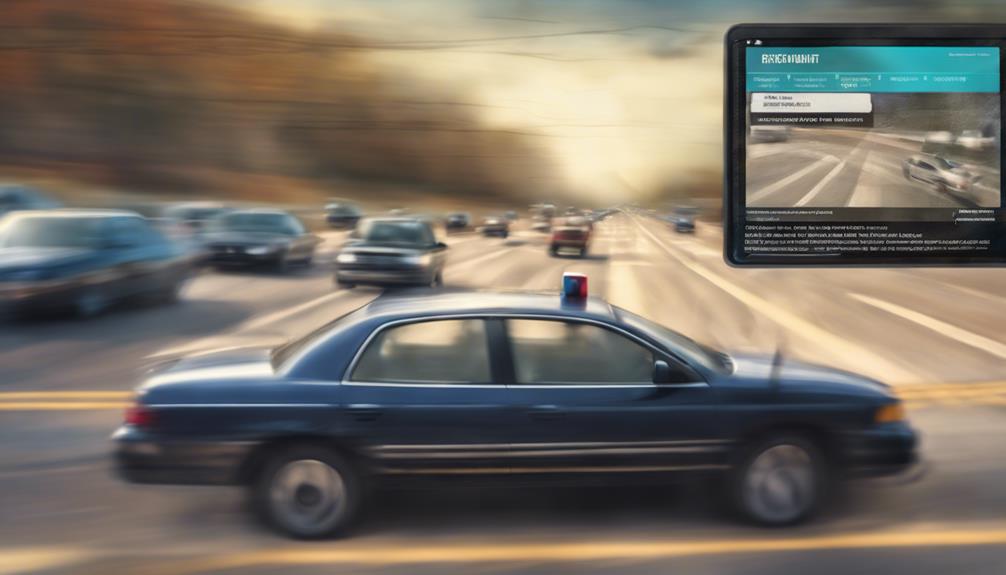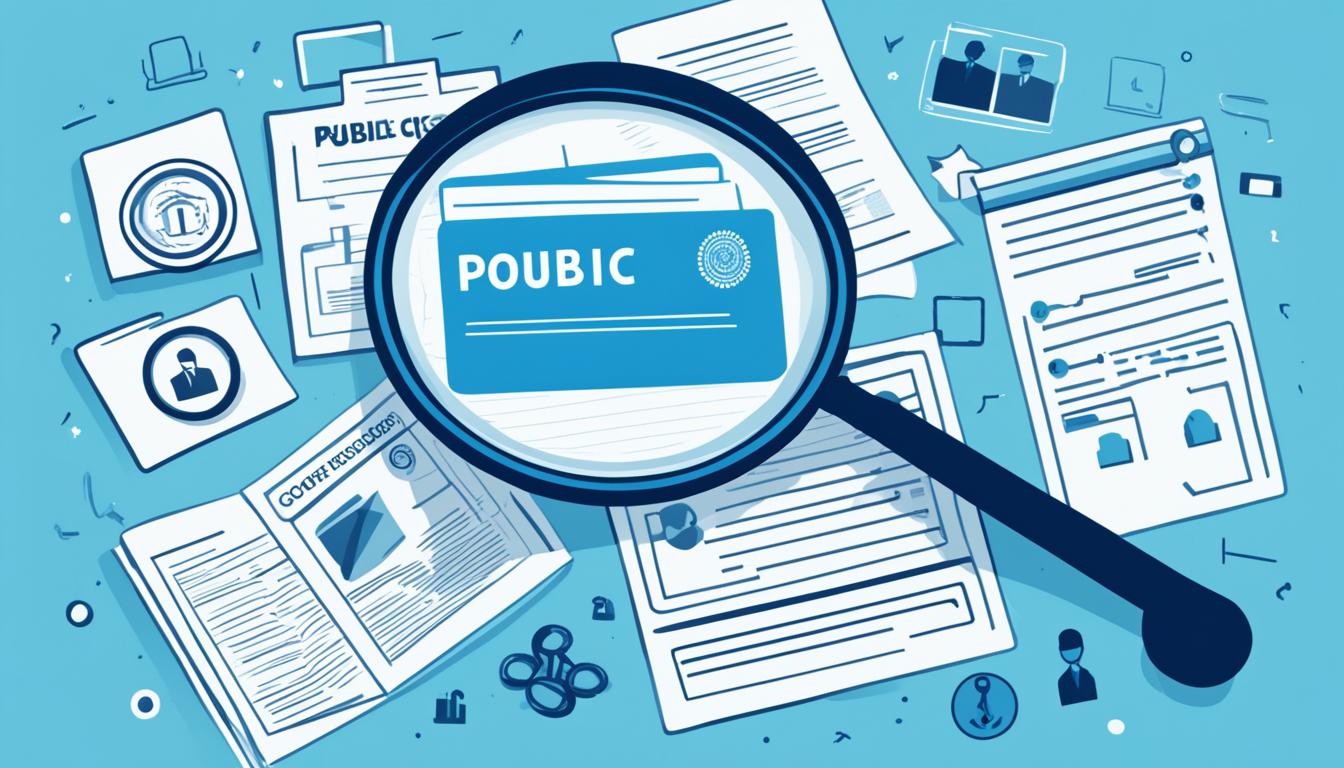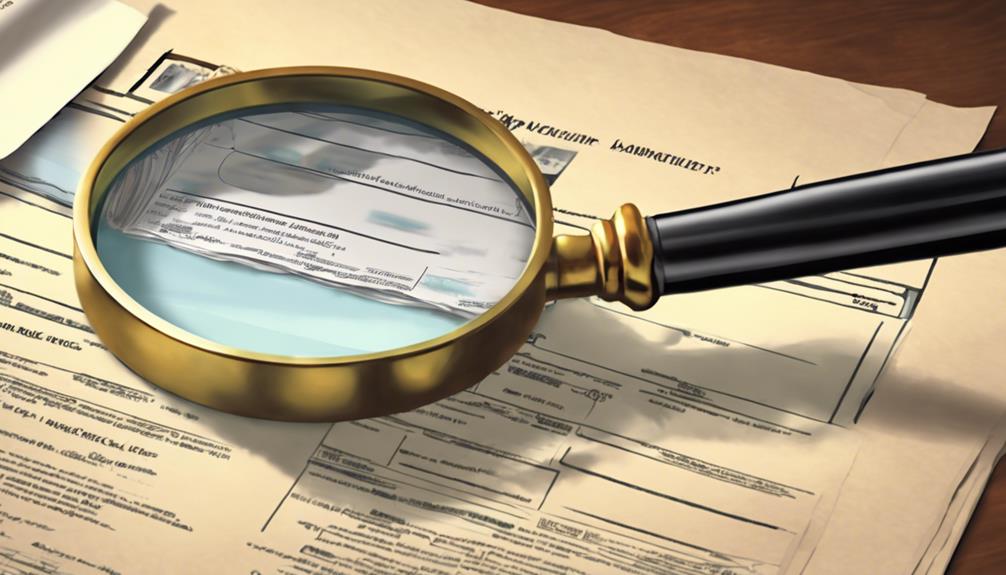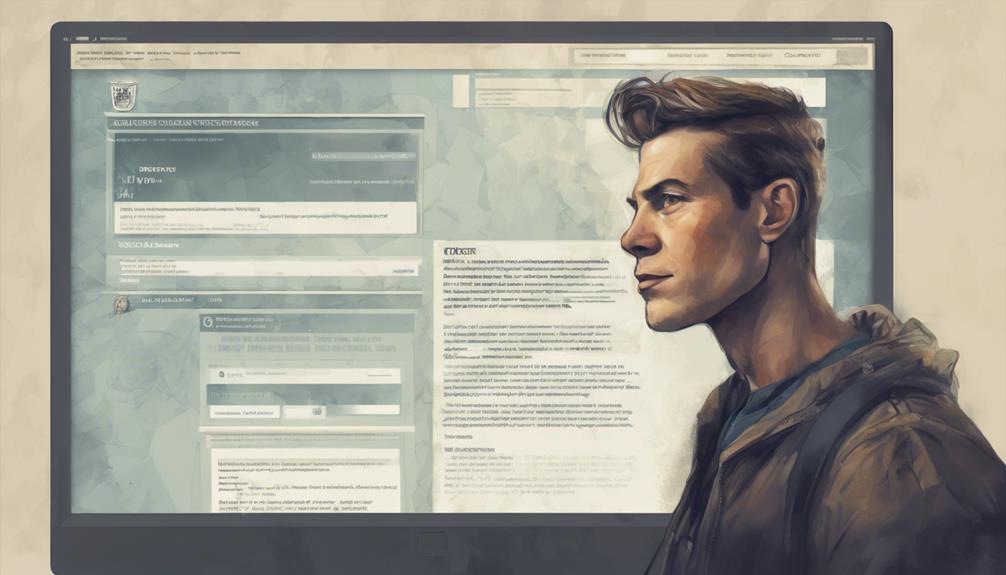Speeding tickets can show up on background checks, impacting job opportunities and driving records. Understanding legal implications, such as class C misdemeanors in Texas, is essential. Defensive driving courses can help dismiss tickets and avoid insurance rate hikes. State reporting practices vary, so seeking legal advice is wise. Job prospects, especially in driving-related roles, may be affected by past violations. Employers review driving records closely. Transparency and addressing tickets promptly are key. For further insights on traffic violations, legal advice, and customer experiences, explore the topic to gain a deeper understanding.
Key Takeaways
- Speeding tickets can show up on background checks.
- They may impact job prospects and driving-related positions.
- Understanding state laws and reporting practices is crucial.
- Transparency about past violations is essential during hiring.
- Seeking legal advice can help navigate implications effectively.
Speeding Tickets in Texas

Speeding tickets in Texas can have lasting implications on one's driving record and legal standing. In Texas, speeding tickets are classified as class C misdemeanors, which means they can show up on driving records obtained from the Department of Motor Vehicles (DMV).
Even if a speeding ticket is dismissed, it may still appear on driving records requested by potential employers during background checks. Multiple speeding violations in Texas can escalate to the point of license suspension, highlighting the seriousness of these traffic infractions.
Understanding the legal implications of speeding tickets in Texas is essential for individuals to navigate potential consequences effectively. It's vital for drivers in Texas to be aware of how speeding tickets can impact their driving record, potentially leading to license suspension and affecting their standing in background checks conducted by employers or other entities.
Defensive Driving Courses
Defensive driving courses can have a significant impact on speeding tickets, leading to their dismissal in Texas.
By completing these courses, individuals may also avoid accumulating points on their driving records.
Additionally, attending a defensive driving course can help drivers prevent insurance rate increases resulting from speeding violations.
Course Dismissal Impact
Completing a defensive driving course can lead to the dismissal of a speeding ticket on an individual's driving record. These courses offer a way for first-time offenders to address speeding violations without accumulating points on their driving record.
While dismissed tickets from defensive driving courses may not impact insurance rates, records obtained from the DMV may still indicate that the violation was committed. By choosing a defensive driving course, individuals can often avoid increases in their insurance rates following a speeding ticket.
This option not only helps in keeping insurance costs down but also prevents the accumulation of points that could result in license suspension or other consequences. Opting for a defensive driving course not only serves as a means to address a speeding violation but also as a proactive step in managing one's driving record and potential insurance implications.
Insurance Rate Benefits
Drivers who successfully finish a defensive driving course may enjoy reductions in their insurance rates. Insurance companies often offer discounts of up to 10% for completing such courses, providing a tangible incentive for drivers to enhance their skills.
These insurance rate reductions can be particularly beneficial for individuals with a history of speeding tickets, as defensive driving courses can help prevent further increases in insurance premiums.
The extent of insurance rate benefits for completing a defensive driving course can vary depending on state regulations and the specific policies of the insurance company. Drivers interested in exploring this option should contact their insurance provider to inquire about potential discounts available upon the successful completion of a defensive driving course.
Legal Implications in Texas

Understanding the legal ramifications of speeding tickets in Texas is essential for individuals deciphering the state's driving laws. Speeding tickets can have significant consequences beyond just fines. In Texas, these violations can show up on driving record checks, potentially affecting job opportunities as employers may see them during background checks. Even if a speeding ticket is dismissed, it might still appear on driving records obtained from the Department of Motor Vehicles (DMV). Additionally, accumulating multiple speeding violations in Texas can result in license suspension, further emphasizing the importance of obeying speed limits. These infractions also have the potential to impact insurance rates, making it crucial for drivers to be mindful of their speed and follow traffic regulations to avoid legal issues.
| Aspect | Impact | Consequences |
|---|---|---|
| Driving Record | Shows up on checks | Job prospects affected |
| License Suspension | Possible with multiple tickets | Driving privileges revoked |
| Insurance Rates | Can increase | Financial burden for the driver |
Dealing With Speeding Tickets
When addressing speeding tickets, individuals should promptly assess their options to mitigate potential consequences on their driving record. Speeding tickets can have implications on background checks for job roles that involve driving.
Employers conducting driving record checks may scrutinize the severity, recency, and frequency of these traffic violations. To manage speeding tickets effectively, individuals can consider paying fines promptly or contesting the ticket if they believe it was unjustly issued.
Understanding a company's policies regarding traffic violations is essential in navigating job prospects. Being proactive in addressing speeding tickets can help individuals maintain a clean driving record and improve their chances of securing employment in roles that require driving.
Traffic Violations Across States

Traffic violations, particularly speeding tickets, can vary in how they're reported on background checks across different states. State regulations play a significant role in determining whether these infractions appear on background checks.
Some states have reciprocity agreements that allow out-of-state tickets to be reflected in background checks, while others may not. Navigating the complexities of reporting procedures across states can be challenging for individuals. Seeking legal advice is advisable to understand how speeding tickets may impact background checks in various jurisdictions.
It's essential to be aware of the laws and regulations of different states to anticipate how traffic violations might show up on background checks. By being informed about state-specific reporting practices, individuals can better prepare for any potential implications of speeding tickets on their background checks.
Impact on Background Checks
Speeding tickets may be flagged on background checks conducted by potential employers, potentially influencing job opportunities. Employers often review driving records as part of the background check process, where past driving violations, including speeding tickets, can show up.
These speeding tickets can have a direct impact on job opportunities, especially for roles that involve driving responsibilities. Employers may view a history of speeding tickets as a red flag for a candidate's responsibility and adherence to rules and regulations.
Understanding how speeding tickets can affect background checks is essential for job seekers, as being transparent about past violations and demonstrating efforts to improve can help mitigate any negative impact. It's critical for individuals with speeding tickets on their record to be prepared to address these issues during the hiring process and showcase their overall qualifications beyond their driving history.
Legal Advice on Traffic Offenses

Seeking guidance from attorneys specializing in traffic offenses can provide valuable insights on handling speeding tickets. These legal experts are well-versed in navigating the complexities of background checks and driving records concerning speeding violations.
By consulting with attorneys experienced in traffic law, individuals can gain a better understanding of the implications of speeding tickets on their background checks. It's crucial to comprehend the potential consequences of speeding tickets to make informed decisions on how to address them legally.
Even for individuals associated with corporate entities, speeding tickets can still have an impact on their background checks. Hence, seeking legal advice on traffic offenses is essential for anyone facing speeding violations to ensure they're equipped to handle the situation effectively and protect their interests.
Working with a knowledgeable attorney can help individuals strategize the best approach to address speeding tickets and minimize any negative repercussions on their background checks.
Specific Traffic Violations
When encountering specific traffic violations, individuals should be aware of the potential impact on their background checks. Here are some key points to keep in mind:
- Speeding tickets: These are common violations that can appear on driving records and background checks.
- Reckless driving and DUIs: Serious offenses like these are likely to show up on background checks and can have a significant impact on one's record.
- Failure to maintain lane or unsafe lane changes: Charges related to these violations may also be included in background checks, indicating poor driving habits.
- License suspensions: Suspensions or revocations stemming from traffic violations can be reflected on background checks, signaling potential issues with the driver's license.
- Dismissed speeding tickets: Even if a speeding ticket is dismissed, it might still show up on background checks obtained by potential employers, so it's crucial to be aware of this possibility.
Customer Experiences & Testimonials

Customers' stories about how speeding tickets affect their background checks shed light on the potential impact of traffic violations on records. Through testimonials, individuals provide insights into the inclusion of speeding tickets on background checks, offering valuable experiences for others to learn from.
Understanding these customer perspectives can help individuals navigate the implications of speeding tickets on their records and job opportunities.
Ticket Impact on Records
Having dismissed speeding tickets appear on background checks obtained from the DMV has been a common concern among individuals. Customers have reported instances where dismissed charges or past speeding violations resurface during background checks conducted by potential employers, leading to questions about mitigating the impact of such incidents.
Seeking help from legal professionals has proven beneficial for individuals looking to understand the impact of speeding tickets on their background checks. Understanding how speeding tickets can affect background checks is pivotal for those concerned about their driving records.
It's essential for individuals to be aware of the potential implications of past violations on their background checks to be better prepared when seeking employment opportunities.
Background Check Inclusions
Reports from individuals have shed light on the inclusion of speeding tickets on background checks, with many sharing their experiences and testimonials regarding the impact of these violations on their records and job prospects.
These customer insights provide valuable information on how traffic violations like speeding tickets can affect one's background check results and potential job opportunities. Testimonials reveal that some employers do consider speeding tickets as part of their background check process, which can influence their hiring decisions.
Understanding what information is included in background checks is essential for individuals with speeding tickets, as it can help them prepare for any potential implications on their job search.
Customer Insights & Experiences
Several individuals have shared insightful experiences regarding how speeding tickets can influence background checks. Customers have highlighted the potential consequences of speeding tickets appearing on background checks, emphasizing the importance of addressing such issues promptly.
Testimonials suggest that individuals have sought advice on handling speeding tickets and understanding their impact on background checks. Customers have also inquired about the visibility of dismissed speeding tickets on background checks, indicating a concern for how these outcomes may affect their records.
Insights from these customer experiences shed light on the significance of speeding tickets in relation to background checks, underscoring the need for awareness and proactive management of such matters.
It's clear that individuals value understanding the implications of speeding tickets on their background checks and seek guidance on managing these situations effectively.
Frequently Asked Questions
Do Speeding Tickets Show up on Background Checks in Texas?
Speeding tickets in Texas may impact background checks. Even dismissed tickets could surface on driving records. Employers often review driving histories for relevant roles, potentially revealing speeding infractions. Understanding this can enhance job opportunities in Texas.
Is a Speeding Ticket in Texas a Misdemeanor?
A speeding ticket in Texas is akin to a minor bump in the legal road. It is indeed classified as a misdemeanor, but not a criminal offense. Understanding this distinction can help individuals navigate the associated penalties.
Is a Citation a Criminal Charge in Texas?
In Texas, a citation is considered a civil violation, not a criminal charge. It is typically classified as a class C misdemeanor. Employers may request driving records from the DMV where dismissed tickets could appear, but not on standard criminal background checks.
Do Speeding Tickets Have an Impact on Background Checks?
When employers conduct background checks for speeding tickets, it can affect the hiring decision. Multiple or recent speeding tickets may raise concerns about an individual’s driving record and responsibility. However, a single, minor offense may not significantly impact employment prospects. It’s important to maintain a clean driving record for background checks.
Conclusion
To sum up, speeding tickets can indeed show up on background checks, potentially affecting future opportunities. It's always best to drive within the speed limit to avoid any legal repercussions.
Remember, a clean driving record is like finding a pot of gold at the end of a rainbow – rare and valuable! Stay safe on the roads and avoid those pesky tickets.









